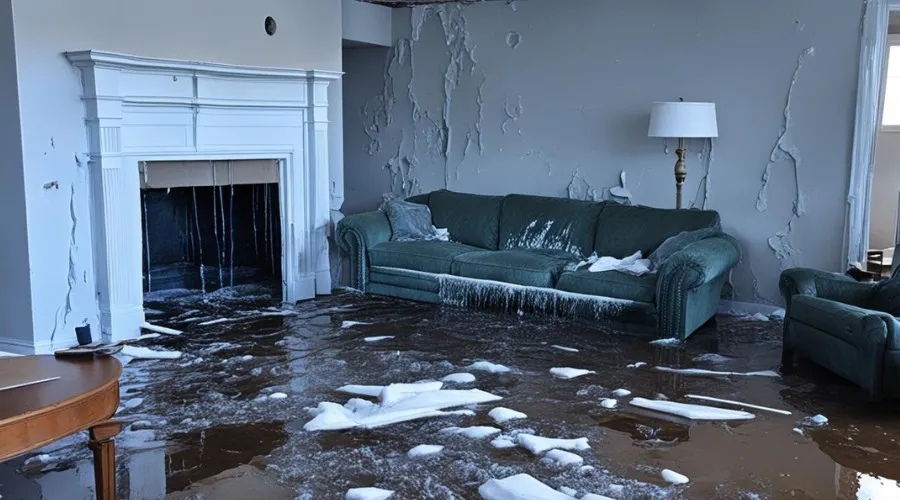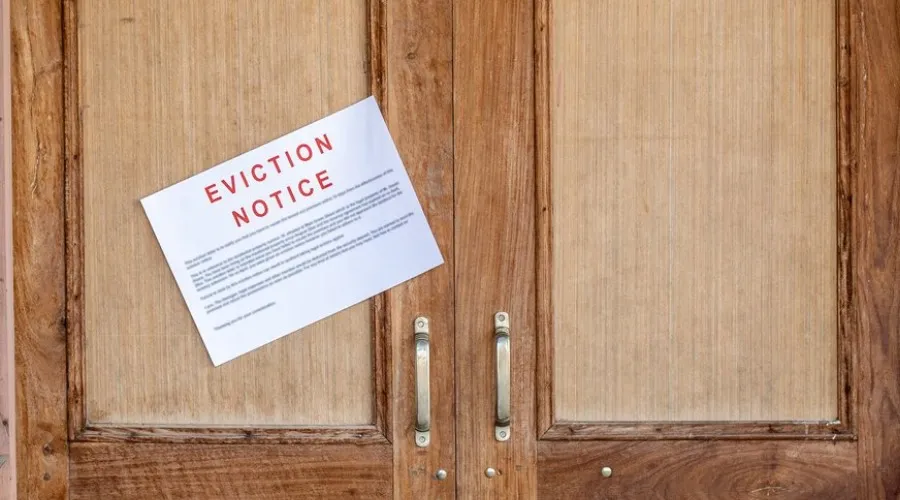Evicting a tenant in Arkansas requires strict compliance with state law, and even a small mistake can cause costly delays or dismissal. This guide explains the eviction process in Arkansas, covering valid grounds, notice requirements, and practical tips to help landlords stay compliant and protect their rental property. With reliable resources from LeaseRunner, you can navigate the process with confidence and avoid common pitfalls.
Overview of Arkansas Eviction Laws
Understanding how eviction works in Arkansas is crucial for both landlords and tenants. The state follows a unique legal framework that heavily favors property owners, making the eviction process in Arkansas different from most other states.
The Arkansas Residential Landlord–Tenant Act of 2007
The foundation of Arkansas rental law is the Arkansas Residential Landlord–Tenant Act of 2007 (Ark. Code Ann. § 18-17-101 et seq.). This law sets out basic duties for both landlords and tenants. For tenants, the Act requires them to:
- Pay rent on time and as agreed in the lease.
- Keep the property clean and safe.
- Dispose of garbage properly and avoid causing damage.
- Comply with lease terms, including restrictions on pets, smoking, or unauthorized occupants.
Arkansas is often described as a landlord-friendly state. The 2007 Act eliminated many tenant protections found in the Uniform Residential Landlord and Tenant Act, giving landlords broader control. Key features include shortened notice periods for termination, immediate disposal of abandoned tenant property, and lease provisions that allow eviction for relatively minor issues.
In 2011, Arkansas amended the law to require landlords to maintain minimum residential quality standards (such as providing hot water, safe electrical systems, and basic structural integrity). However, these requirements remain limited compared to other states. Critics argue that while landlords benefit from flexibility, tenants are left with fewer legal protections despite renters making up more than one-quarter of Arkansas households.
Arkansas Residential Landlord–Tenant Act of 2007
Evictions may occur for reasons such as non-payment of rent, lease violations, or criminal activity. The eviction law is designed to streamline the process and reduce the defenses available to tenants. To check compliance details, you can review Arkansas eviction laws.
Because the eviction process in Arkansas is faster than in most other states, landlords often gain possession of their property within weeks rather than months, provided they follow every step correctly.
Legal Grounds for Eviction in Arkansas
Before starting the eviction process in Arkansas, landlords must understand the legal grounds under state law. Arkansas is widely known as a landlord-friendly state, and its eviction rules reflect that stance. Below are the main scenarios where an eviction can occur.
Failure to vacate/Criminal evictions
One of the most unique aspects of Arkansas eviction law is the “failure to vacate” statute (Ark. Code Ann. § 18-16-101). Unlike most states, Arkansas treats nonpayment of rent not only as a civil matter but also as a potential criminal offense.
- Rent is considered late after five days past the due date.
- At that point, the landlord can issue a 10-day written notice to vacate.
- If the tenant refuses to leave, they may be charged with a misdemeanor, facing fines of up to $25 per day until they move out.
This process allows landlords to involve law enforcement directly, speeding up removal compared to civil court. However, landlords may still need to pursue a civil unlawful detainer action to regain possession of the property. While the law has faced constitutional challenges, as of 2025, it remains enforceable.

Subsidized housing evictions
For tenants living in public housing, Section 8, or HUD-assisted units, both federal rules and Arkansas state law apply. These tenants cannot be evicted without good cause, such as:
- Serious or repeated lease violations
- Nonpayment of rent
- Criminal activity on the property
- Health and safety threats
Key differences from standard rentals:
- State law requires at least a 3-day notice for nonpayment, but federal rules may extend this to 10–30 days depending on the program.
- Landlords must notify the housing authority before filing in court.
- Tenants have added protections such as grievance hearings and reasonable accommodations under the Fair Housing Act.
Unlike periodic private rentals, “no-cause” evictions are not allowed in subsidized housing.
Unlawful detainer
In Arkansas, unlawful detainer is the main civil process landlords rely on when pursuing an eviction. This action is used when a tenant continues to occupy the rental property after violating the lease or failing to meet key obligations.
The most common reasons for filing an unlawful detainer include:
- Failure to pay rent and continuing to stay in the property after receiving a 3-Day Notice to Vacate.
- Lease violations, such as property damage or unauthorized occupants, are addressed where tenants are given a short opportunity to cure.
- Serious misconduct, including nuisance behavior or criminal activity, which in some cases may justify immediate removal.
Because the unlawful detainer process is designed to resolve disputes quickly, it often takes only 30–45 days from start to finish. This makes it one of the most efficient legal procedures in Arkansas. (For a full breakdown of rules, see Arkansas landlord–tenant laws).

Lockouts and self-help evictions
Despite Arkansas being landlord-friendly, self-help evictions are illegal. A landlord may not:
- Change locks
- Shut off utilities
- Remove doors or tenant belongings
- Use intimidation to force tenants out
Any attempt to bypass the judicial process can result in civil liability, damages, attorney’s fees, and even criminal charges. Tenants facing such conduct may contact law enforcement or file a lawsuit for wrongful eviction. Only a valid court order can authorize physical removal.
Serving an Eviction Notice in Arkansas
Before starting the eviction process in Arkansas, landlords are legally required to serve tenants with a proper written notice. This step is critical because courts will not allow an unlawful detainer case to proceed unless the notice is valid and properly delivered.
Types of eviction notices and time periods
The type of notice—and how long a tenant has to respond—depends on the reason for eviction:
- Rent Demand Notice (Civil) – 3 days to quit. For civil nonpayment cases, landlords may give tenants a three-day notice to vacate. Unlike in some states, Arkansas does not require the landlord to accept late rent to stop the eviction (ACA § 18-60-304).
- Rent Demand Notice (Criminal) – 10 days to quit. If the landlord files a criminal “failure to vacate” action, the tenant receives ten days to move out. Refusing to leave can also result in misdemeanor charges (ACA § 18-16-101).
- Lease Violation Notice – 14 days to cure or quit. For breaches other than nonpayment (such as property damage or unauthorized pets), tenants have at least 14 business days to fix the issue or face termination (ACA § 18-17-701).
- Unconditional Notice to Quit – Immediate. Used for serious illegal activity such as drug crimes, illegal gambling, or creating a public nuisance. These violations cannot be cured, and landlords may move forward with eviction immediately (ACA § 18-16-502).
Each notice must clearly state the grounds for eviction, the deadline to comply or vacate, and be in writing to be enforceable.
Methods of serving the notice
Arkansas law permits several service methods to ensure tenants are properly informed:
- Personal service: Handing the notice directly to the tenant.
- Substituted service: Delivering to another adult (18+) at the rental property.
- Mail service: Certified mail or first-class mail.
- Posting: As a last resort, posting the notice in a visible place like the front door.
For formal court filings, landlords often use a sheriff, deputy, or licensed process server.

Proof of service and documentation
Courts require evidence that the tenant was served correctly. Landlords should always keep:
- A signed affidavit of service or proof of delivery (mail receipts).
- Photos or timestamps if posting the notice.
- Copies of the notice itself and related communications.
Without proper documentation, a judge may dismiss or delay the eviction case.
Next steps after serving the notice
If the tenant does not comply within the notice period, the landlord may file an unlawful detainer complaint in circuit or district court. Filing fees usually range from $165 to $263.
- The court issues a summons, giving tenants 5 days (civil) or 10 days (criminal) to file an objection or written response with the court.
- If no response is filed, the landlord can request a default judgment and obtain a writ of possession, enforceable by law enforcement within 24 hours.
- If tenants contest, a hearing will be held for both sides to present evidence.
Step-by-Step Arkansas Eviction Procedure
Understanding the eviction process in Arkansas is essential for both landlords and tenants. The steps below explain how an eviction legally unfolds, from serving notices to final removal.
Step 1 - Serving an Arkansas Eviction Notice
Before filing in court, a landlord must deliver a written notice that clearly states the reason for eviction and the time the tenant has to respond. Arkansas law provides different notice periods depending on the violation, such as nonpayment of rent, lease breaches, or serious misconduct.
All notices must be properly served—either delivered in person, left with someone at the residence, or posted in a visible spot on the property. Landlords are also encouraged to send a copy by certified mail to create proof of service.
Step 2 - Filing the Eviction Lawsuit (Unlawful Detainer)
If the tenant does not comply with the notice, the landlord may file an Unlawful Detainer complaint in circuit or district court. The complaint includes details such as the rental address, lease type, rent amount, and the reason for eviction. A filing fee applies, and the landlord must attach the notice and lease agreement (if written) to the court documents.
Step 3 - Court Issues Notice of Intent and Tenant Response
After filing, the court serves the tenant with a Notice of Intention to Issue Writ of Possession. This document orders the tenant to either move out or file an answer within five days (for most cases) or ten days (for criminal nonpayment cases). If the tenant does not respond, the court may issue a writ of possession by default.
Step 4 - Tenant Summoned to Court
If the tenant files an answer, the court schedules a hearing. The summons is served by the sheriff or process server, and the tenant is notified of the hearing date. Landlords should bring all supporting documents, including the lease, notice, and proof of service.
Step 5 - Court Hearing and Judgment
At the hearing, both landlord and tenant present evidence. If the judge rules for the landlord, a writ of possession is issued—usually within three days. The landlord must pay a small fee and then deliver the writ to the sheriff for enforcement.
Step 6 - Sheriff Enforces the Eviction
Once the sheriff receives the writ, the tenant has 24 hours to move out. If they fail to leave, the sheriff is authorized to physically remove the tenant and their belongings. Any personal property taken from the unit must be stored or sold in a commercially reasonable manner, with proceeds applied toward damages and unpaid rent.
Eviction Timeline & Costs in Arkansas
The eviction process in Arkansas typically takes about 30 to 45 days from start to finish, though the exact length depends on the type of notice, the court’s schedule, and whether the tenant contests the case. Each stage also comes with specific costs that landlords should prepare for. The table below combines both timeframes and estimated expenses across the six main steps.
Required Documents for the Arkansas Eviction Process
Before moving forward with an eviction, Arkansas landlords must prepare specific legal documents. Each stage of the eviction process in Arkansas has its own paperwork requirements. Using legally compliant lease agreement templates ensures your case is valid in court.
Eviction notices and pre-filing requirements
The process starts with serving a written eviction notice. This is a mandatory step before any court filing. Notices must clearly state the reason for eviction, the deadline to fix the issue or vacate, and be delivered by personal service, certified mail, or posting if other attempts fail. In severe cases like criminal activity or dangerous nuisances, no advance notice may be required.
Court filing documents: Complaint and affidavit
If the tenant does not comply by the deadline, the landlord must file documents in the district or circuit court to begin an unlawful detainer lawsuit. These filings typically include:
- Complaint in Unlawful Detainer – outlines the landlord’s right to possession, the lease terms, the eviction grounds, and relief sought (e.g., writ of possession, judgment for unpaid rent).
- Affidavit – a sworn statement confirming the landlord’s entitlement to possession and eviction grounds.
Supporting evidence, like the lease agreement or proof of unpaid rent, should be attached. Filing fees generally range from $165–$263.
Service documents: Summons and proof of service
After filing, the court issues a Summons, which must be served with the complaint and other filings. Service must follow Arkansas civil procedure rules: personal delivery by a sheriff or process server, certified mail with return receipt, or posting when other methods fail.
A Proof of Service (such as an affidavit or certified mail receipt) must be filed to confirm the tenant was properly notified. Tenants typically have five days (civil cases) or up to 10 days (criminal cases) to respond in writing.
Post-Judgment documents and enforcement
If the landlord wins, the court issues a Writ of Possession, authorizing the sheriff to remove the tenant after 24 hours’ notice. Additional judgments may cover unpaid rent, property damage, or court costs. In some cases, orders for storing tenant belongings are also required.
Tenants who appeal can request a stay of execution, but they must post a bond or meet other court conditions. Importantly, Arkansas law prohibits “self-help” evictions—only law enforcement can physically remove tenants.

5 Tips to Avoid Common Eviction Mistakes
Evicting a tenant in Arkansas isn’t as simple as posting a note on the door. Landlords must follow the eviction process in Arkansas precisely, or risk case dismissal, costly delays, or even lawsuits. Below are five practical tips to help you stay compliant and protect your rental property.
1. Provide a proper written notice
One of the biggest mistakes landlords make is skipping or mishandling the written notice. Arkansas law requires specific notice types and timeframes—such as 3 days for nonpayment, 10 days for criminal failure to vacate, or 14 days to cure lease violations. Always include the reason for eviction, ensure names and dates are correct, and use notice templates that follow the Arkansas Residential Landlord–Tenant Act.
2. Never attempt self-help evictions
Changing locks, cutting off utilities, or removing belongings without a court order is illegal in Arkansas. These actions can expose you to civil penalties or even criminal charges. Instead, follow the judicial process by serving the proper notice, filing an unlawful detainer lawsuit, and letting the sheriff enforce removal only after the court issues a writ of possession.
3. Keep detailed documentation
Disorganized records weaken your case. Maintain copies of the lease agreement, rent receipts, inspection reports, and all communications with tenants. Digital tools or ledgers make it easier to track payments and violations. Good documentation shows the court that you acted legally and strengthens your position during hearings.
4. Confirm legal grounds before filing
Eviction must be based on valid reasons recognized under Arkansas law, such as nonpayment of rent, lease violations, or criminal activity. Trying to remove a tenant for retaliatory or discriminatory reasons violates federal fair housing laws. Review the lease terms and Arkansas statutes before starting the process to avoid dismissal or counterclaims.
5. Use professionals and seek legal advice
Improper service of notices or court papers can force you to restart the entire case. Hire a process server or sheriff for reliable delivery and keep proof of service. For complex cases—such as subsidized housing or repeated violations—consult an attorney early. Professional guidance ensures compliance and helps you avoid costly mistakes.
Conclusion
Navigating the eviction process in Arkansas can feel overwhelming, but landlords who follow the law step by step will avoid costly mistakes. By serving proper notices, keeping strong documentation, and relying on professional legal guidance, you can protect your rights while maintaining compliance with Arkansas landlord–tenant law. Staying informed and prepared ensures a smoother process, whether dealing with nonpayment, lease violations, or more complex eviction cases.
Learn more about Arkansas squatter rights here and explore resources on normal wear and tear to protect your rental investments fully.
FAQs
Q1. What are valid reasons for eviction under Arkansas law?
Landlords may begin the eviction process in Arkansas for reasons such as nonpayment of rent, lease violations (like unauthorized pets or damage), or criminal activity on the property.
Q2. Do tenants have any defenses in the eviction process in Arkansas?
Yes. Tenants may challenge an eviction if the landlord failed to provide proper notice, if the eviction is retaliatory or discriminatory, or if rent payments were recorded incorrectly.
Q3. Do landlords need an attorney for the eviction process in Arkansas?
While not always required, having an attorney can help landlords avoid errors with notices, filings, and hearings, especially in contested or complex cases.



